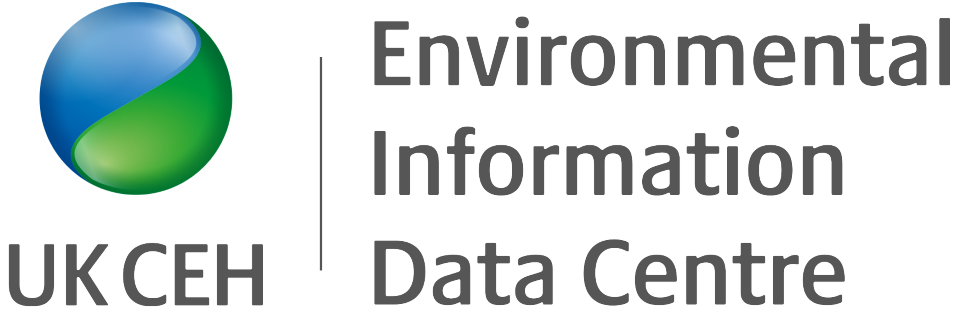
These data are held and managed by the Environmental Information Data Centre
For more details and to access the data, go to https://catalogue.ceh.ac.uk/id/6d8d5cb5-bd54-4da7-903a-15bd4bbd531b
For more details and to access the data, go to https://catalogue.ceh.ac.uk/id/6d8d5cb5-bd54-4da7-903a-15bd4bbd531b
Redhead, J.W. et al
Plant-pollinator interactions database for construction of potential networks
https://doi.org/10.5285/6d8d5cb5-bd54-4da7-903a-15bd4bbd531b
Cite this dataset as:
Redhead, J.W.; Coombes, C.F.; Dean, H.J.; Dyer, R.; Oliver, T.H.; Pocock, M.J.O.; Rorke, S.L.; Vanbergen, A.J.; Woodcock, B.A.; Pywell, R.F. (2018). Plant-pollinator interactions database for construction of potential networks. NERC Environmental Information Data Centre. https://doi.org/10.5285/6d8d5cb5-bd54-4da7-903a-15bd4bbd531b
Download/Access
PLEASE NOTE:
By accessing or using this dataset, you agree to the terms of the relevant licence agreement(s). You will ensure that this dataset is cited in any publication that describes research in which the data have been used.
© UK Centre for Ecology & Hydrology
This dataset is made available under the terms of the Open Government Licence 
Plant-pollinator interactions database derived from biological recording data, unpublished experimental data and published interactions in books and papers. The database covers all recorded interactions for bees, hoverflies and butterflies in mainland GB. Interactions were inferred from biological recording metadata by algorithmically screening for text matching a valid scientific or vernacular plant name (or a widely used synonym or abbreviation of either), followed by manual data cleaning. These data were compiled for the construction of multiple potential plant-pollinator networks in combination with plant and pollinator occurrence data.
Publication date: 2018-04-26
Format
Comma-separated values (CSV)
Spatial information
Study area
Spatial representation type
Tabular (text)
Spatial reference system
OSGB 1936 / British National Grid
Provenance & quality
Biological recording data were obtained from the Bees, Wasps and Ants Recording Society (BWARS), Butterflies for the New Millennium (BNM, Asher 1997) and Hoverfly Recording Scheme (HRS), with interactions recorded as incidental metadata submitted alongside occurrence records. Pollinator biological records with associated metadata were algorithmically screened for text matching a valid scientific or vernacular plant name (or a widely used synonym or abbreviation of either). In most cases, such matches record the visitation of a flower by a pollinating insect. However, there are other reasons for a valid match in the comments field, including descriptions of local habitat (e.g. 'English oak woodland'), pollinator behaviour (e.g. 'flying near blackthorn hedge') or sampling methods (e.g. 'swept from Arrhenathrum eliatus sward'). In order to exclude these, all plant species producing a match were screened according whether they produce flowers which are known to be visited by insects and whether such visits are likely to result in beneficial pollen transfer (i.e. the plant is primarily entomophilic). These criteria excluded the majority of trees and grasses, which are likely to derive from habitat descriptions or interactions other than flower visits (e.g. honeydew feeding). Even though some primarily wind-pollinated grass flowers are known to be visited by certain pollinators, their impact on pollen transfer is likely to be very slight in temperate climates (Clifford 1964; Adams et al. 1981). The data contains only plant species not defined as 'casuals' in PLANTATT ('casual is a plant that is present only as populations which fail to persist in the wild for periods of more than approximately five years' Hill et al. 2004).
For a full description of methods, please download the supporting documentation (plant_pollinator_interactions_supporting_documentation.rtf)
For a full description of methods, please download the supporting documentation (plant_pollinator_interactions_supporting_documentation.rtf)
Licensing and constraints
This dataset is made available under the terms of the Open Government Licence 
Cite this dataset as:
Redhead, J.W.; Coombes, C.F.; Dean, H.J.; Dyer, R.; Oliver, T.H.; Pocock, M.J.O.; Rorke, S.L.; Vanbergen, A.J.; Woodcock, B.A.; Pywell, R.F. (2018). Plant-pollinator interactions database for construction of potential networks. NERC Environmental Information Data Centre. https://doi.org/10.5285/6d8d5cb5-bd54-4da7-903a-15bd4bbd531b
© UK Centre for Ecology & Hydrology
Citations
Freimuth, J., Bossdorf, O., Scheepens, J.F., & Willems, F.M. (2022). Climate warming changes synchrony of plants and pollinators. Proceedings of the Royal Society B: Biological Sciences, 289(1971) https://doi.org/10.1098/rspb.2021.2142
British Ecological Society (2020). BIO0050 - Biodiversity and Ecosystems. UK Parliament Select Committee Publications. https://committees.parliament.uk/writtenevidence/12281/pdf/
Correspondence/contact details
Redhead, J.
UK Centre for Ecology & Hydrology
Maclean Building, Benson Lane, Crowmarsh Gifford
Wallingford
Oxfordshire
OX10 8BB
UNITED KINGDOM
enquiries@ceh.ac.uk
Wallingford
Oxfordshire
OX10 8BB
UNITED KINGDOM
Authors
Coombes, C.F.
Centre for Ecology & Hydrology
Dyer, R.
Centre for Ecology & Hydrology
Oliver, T.H.
University of Reading
Rorke, S.L.
Centre for Ecology & Hydrology
Other contacts
Rights holder
UK Centre for Ecology & Hydrology
Custodian
NERC EDS Environmental Information Data Centre
info@eidc.ac.uk
Publisher
NERC Environmental Information Data Centre
info@eidc.ac.uk

 https://orcid.org/0000-0002-2233-3848
https://orcid.org/0000-0002-2233-3848